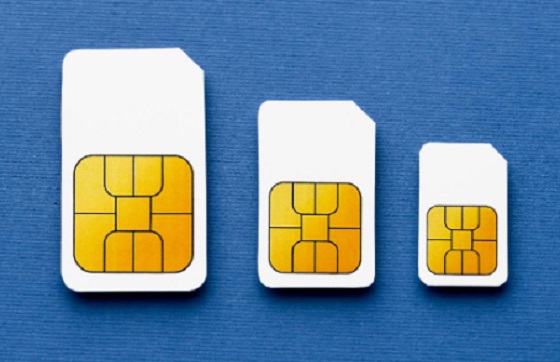Also Interesting
Independent Casino Technologies Changing The Market

The first standalone online gambling site was developed in 1994 by Microgaming, having mainly slots. From that date until today, it’s estimated the online gambling industry has generated over 2 trillion US dollars averaging about 40 billion dollars globally every year. This remarkable growth has been possible because of the constantly developing technologies such as Live casinos, and mobile technology. Technological developments like AR (Augmented Reality), VR (Virtual Reality), etc. Incorporating such technologies into independent online casinos makes it even more entertaining, and helps online casinos become particularly attractive, especially to the young generation.
The development of cyber security and GTT (geolocation Tracking Technology) plays a vital role in the iGaming industry’s growth. Today, various casinos are licensed based on the level of security they provide. The best casinos provide about 128-bit encryption during transactions with the additional protection of the payment gateway.
Virtual & Augmented Reality
Virtual Reality or VR is the most happening technology used in the iGaming industry. VR gives a 3D view of a game that stimulates the natural world through a pair of electronic goggles. VR technology develops a computer-generated environment with scenes from the game that enhances user engagement, therefore, improving the retention time of the players. VR headsets are readily available, and demand for VR games is growing. Various VR casino games are available in different markets, including Social Club VR by Perilous Orbit, Poker Star VR by Lucky VR, VR slots 3D by Belka VR, Blackjack Bailey VR byiCandy games, and Hologram Softwares LTD.
AR involves the use of the player’s environment. Instead of a computer-generated environment to provide a real-time game experience, AR integrates game visuals and game audio with the player’s surroundings. Like VR, AR technology has captivated audiences, increasing numbers in the gambling industry. AR does not need any particular tool for the experience, so it has more demand than VR. Players can experience a real-time casino environment from their homes, and thus, AR creates an immersive experience for gamers. According to one estimate, extended reality technologies could boost the global online gambling market significantly, with total revenue exceeding 125 billion US dollars per year by 2027, and 127 billion US dollars by 2028.
Mobile Technology
At first, when the online gambling industry was in its infancy, it was impossible to imagine gambling in today’s “anytime-anywhere” situation. With access to Android and iOS to people all over the world, mobile-based casinos are in high demand. Playtech was one of the first mobile-based gambling software launched in 2005. Today, all the major casinos offer mobile applications and use software that runs seamlessly on mobile. Some of the leading casinos also pay additional bonuses to mobile players, thereby boosting their organic influx.
Mobile technology has successfully boosted the iGaming platforms enabling users to access HTML5, CSS3 compliant games over their smartphones.
Live Casino
Live casinos provide the perfect setup for a player to experience a real casino ambience without actually visiting a casino. Players get a chance to gamble with real users logged in from around the world and dealing with a live dealer, in a real-time game.
Data Modelling
Data modelling is a software engineering technique that analyses the data and its relationship with others. The purpose of data modelling is to produce structured data for getting consistent results for operating gambling sites. Data mining and predictive analytics are used to design models that improve the players’ game experience, which in turn promises better engagement.
GTT & Cyber Security
Maintaining legality is one of the main objectives of the major online casinos. Many states do not allow specific types of gambling or overseas gambling, and gambling operators do not allow citizens of the state to gamble on their websites. Previously casinos relied on the information provided by the player, which was not always authentic. With the emergence of GTT or geolocation tracking technology, the problem was resolved as GTT can read the user’s IP address and enables sites to block access to the players outside the defined borders. Although users can use VPN (Private virtual network) to hide the IP address from the geolocation tracker of some sites, illegal gambling has been restricted to a large extent.
Cyber security takes up a significant portion of the casino budget. Casinos must offer solid protection for their users from hackers aiming to steal confidential financial and demographic data from secured servers. Casinos usually collaborate with payment methods that use a well-encrypted payment gateway system to avoid any “middle-man” sniffing attacks.
Conclusion
Online gambling is an ever-growing industry. The latest technologies like AR, VR, and live casinos make this exciting business thoroughly entertaining. The customer satisfaction factor has increased many fold with the introduction of these path-breaking technologies.
Also Interesting
If You Frequently Travel, A Second Phone Number Can Be A Cost Effective Solution

Advances in transport technology have reduced not only travel times but also costs. Airlines and tour companies offer a wide array of cut-price deals, so if you already have a destination in mind, sign up for email alerts. Today, you can fly from Canada to Europe in around 6 hours, whereas decades ago, the same journey took weeks by boat. Maybe you travel to represent your organization for work-related purposes. In that case, you get to combine business and leisure, so you’ll return to the office refreshed and ready to be productive.
Suppose you’re an international traveler, a savvy vacationer, or even a local adventurer. In that case, you know a few trips make your trip easier: a passport, comfy shoes, and a six-port USB charger. And it doesn’t take long to realize there’s one thing you’ve forgotten. You need an eSIM Canada for enhanced privacy protection, streamlined communications, and the ability to avoid expensive roaming charges. You probably have an expensive Android or iPhone device, so the last thing you want is another handset. There are many ways to add an extra phone number that works with your smartphone.
Get And Setup An eSIM, Which Works Like A Physical SIM Card
eSIM technology offers a seamless, more integrated approach to connectivity, so it’s a progress from traditional SIM cards. By enabling the eSIM profile, you get access to the operator’s network, which is optimized for local access and helps avoid potential roaming restrictions. This level of resiliency is convenient for specific use cases, such as Google Maps, that require automatic initial connectivity. I you’re traveling, it’s recommended to install the eSIM a couple of hours before your trip or once you’ve reached your destination. The validity period starts counting. You’ll need a WiFi or data connection to set up the eSIM on your device.
You can manually activate the eSIM by pasting the installation code (and any other required information) if you don’t have another device to scan. You should activate the eSIM as soon as you arrive at our destination to prevent your mobile phone data from being used. Activating roaming or data roaming from your device will activate the plan. You can install the eSIM by scanning the QR code you received from the provider: open the built-in camera app, point the camera at the QR code, and tap the banner that appears on your phone. Label the eSIM and set your preferences for calls, messages, and data.
Not Only Do You Get To Keep Your Phone, But You Can Also Add A New Number
An additional phone number allows you to distinguish between personal and professional calls and messages, fostering a healthier work-life balance, and adds another layer of anonymity when interacting with strangers. Work, friends, family, and dating contacts are entirely separate. Texting is unlimited, calling works with your carrier within minutes, and voicemail is easy to customize. You can talk and text using any phone number at any time. The second line might be a disposable or semipermanent number. When traveling overseas, you’ll need to provide your phone number to hotels, bicycle-sharing services, and so on.
Having a phone that works just like it does back home when traveling abroad is the best thing you can do to reduce stress. Being able to keep in touch with family and friends, using Google Translate, and having access to booking sites in the event of delays are just some of the reasons why Internet access is indispensable. Get a full-featured number that supports limitless Internet so you can use apps like WhatsApp, Facebook Messenger, or Skype. It’s not a good idea to use image-heavy social media apps like Snapchat or Instagram.
How To Get The Best Performance Out Of Your Esim When Traveling
Some smartphones have both a removable SIM card and an eSIM card, which allow users to have two separate numbers – i.e., a personal number and a work number – on one device. After establishing a connection to a mobile network, your eSIM will be functional and ready for immediate use. Using a local mobile network while overseas is more affordable than paying roaming costs to your home network; should you mistakenly erase your eSIM, you must reach out to your provider and ask for another installation code. Some device manufacturers offer instructions on how to use plans from two different providers.
In what follows, we’ll present our favorite tips on how to make the most of your eSIM when traveling abroad:
● Strategically plan your data usage: Review your plan details before jetting off. Understanding what your eSIM package includes will help you prepare for your trip and stay connected while miles away.
● Give your eSIM a custom name: During the eSIM installation, you can label your new SIM. For instance, you can name the eSIM “Travel” or “Canada eSIM” and your existing physical SIM “Personal”. If you change your mind, you can edit them at any time.
● Turn on push notifications: You can turn on push notifications to be informed if data is running low or your eSIM is about to expire. You can stay focused without constant interruptions.
In Closing
If you’re traveling internationally, having a second phone number can offer several advantages, such as security, privacy, and convenience. It can be used for bookings, online registrations, and transactions, therefore minimizing the risk of your primary number being exposed to scams and other types of cyberattacks. You can install one or more eSIMs on your device and have two phone numbers at the same time. Remember, the service provider has control over the subscription and is required to maintain an adequate phone signal.
The eSIM plan will automatically expire once you’ve used up your data or when your purchased days run out. You can add more days to your existing plan by reloading your eSIM: simply log into your account and choose the eSIM you wish to extend so you don’t have to worry about connectivity interruptions. This is ideal for short or even long-term travelers.
Also Interesting
How to Deposit and Withdraw in CAD at Sol Casino: A Guide for Canadian Players

When choosing an online casino, Canadian players not only look for exciting games and bonuses but also for easy and secure payment methods in Canadian dollars (CAD). Sol Casino understands this need and has created a streamlined system for deposits and withdrawals that suits players across Canada.
This guide walks you through how to fund your account, cash out your winnings, and which methods are most efficient and convenient.
Why Use CAD at Sol Casino?
Sol Casino supports transactions directly in Canadian dollars, which is a huge advantage. This means:
No currency conversion fees
Simplified banking
Faster transactions
Better tracking of your gambling budget
For Canadian players, avoiding unnecessary fees and delays is crucial. Sol Casino ensures you can deposit and withdraw in your local currency without any added complications.
How to Deposit Funds at Sol Casino (Step by Step)
Funding your Sol Casino account is simple. Follow these steps to make a deposit:
1. Log in to your Sol Casino account.
2. Go to the Cashier/Deposit section.
3. Choose your preferred payment method.
4. Enter the amount you wish to deposit (minimum deposit usually starts at $20 CAD).
5. Follow the prompts to complete the transaction.
Most deposits are instant, meaning you can start playing right away.
Popular Deposit Methods for Canadians
Sol Casino offers a variety of trusted options tailored for Canadian players:
Interac e-Transfer: A go-to choice in Canada, easy to use and highly secure.
MuchBetter: A modern e-wallet app offering fast, private transfers.
ecoPayz: Another reliable e-wallet widely used in Canada.
Visa/Mastercard: Traditional and familiar for most users.
Cryptocurrencies: Includes Bitcoin, Ethereum, and more for added privacy.
Each method is secure and designed to fit your lifestyle and preferences.
How to Withdraw Winnings in CAD
Cashing out your winnings is just as easy. Here’s how to request a withdrawal:
1. Go to your account dashboard and select Withdraw.
2. Choose the same method used for depositing (if possible).
3. Enter the amount you want to withdraw.
4. Submit your request and wait for confirmation.
Before processing your first withdrawal, Sol Casino may ask for ID verification to comply with KYC (Know Your Customer) rules. This is standard for any legitimate casino and helps protect your account from fraud.
Withdrawal Processing Time
Sol Casino processes withdrawal requests quickly. Here’s a general idea of how long it may take:
E-wallets (MuchBetter, ecoPayz): 0–24 hours
Cryptocurrency: 1–12 hours (depending on network speed)
Interac: 1–2 business days
Cards (Visa/Mastercard): Up to 3–5 business days
Once your identity is verified, future withdrawals are often processed faster.
Tips for Smooth Transactions
Verify your account early to avoid delays during your first withdrawal.
Use the same method for deposit and withdrawal whenever possible.
Set responsible limits to manage your gambling activity.
Watch for promotions offering cashback or deposit bonuses for specific payment methods.
Sol Casino also sends notifications and email confirmations for each transaction, adding transparency to the process.
Customer Support for Payment Issues
If you run into any trouble while depositing or withdrawing, Sol Casino has a 24/7 support team ready to help. You can use:
Live chat for immediate assistance
Email support for more detailed inquiries
FAQ section with answers to common questions about payments
All services are available in English and French, making support accessible to all Canadian users.
Conclusion: Fast, Flexible, and Canadian-Friendly Banking
Sol Casino has built a payment system that respects Canadian needs. With support for CAD, a variety of local methods like Interac and MuchBetter, and fast withdrawals, it provides a hassle-free banking experience. Whether you’re playing for fun or aiming for big wins, Sol Casino ensures your money is handled safely, securely, and efficiently.
-

 Business2 days ago
Business2 days agoChinese firm unveils palm-based biometric ID payments, sparking fresh privacy concerns
-

 2025 Federal Election2 days ago
2025 Federal Election2 days agoConservatives promise to ban firing of Canadian federal workers based on COVID jab status
-

 Business1 day ago
Business1 day agoIs Government Inflation Reporting Accurate?
-

 2025 Federal Election1 day ago
2025 Federal Election1 day agoCarney’s Hidden Climate Finance Agenda
-

 Environment2 days ago
Environment2 days agoExperiments to dim sunlight will soon be approved by UK government: report
-

 2025 Federal Election1 day ago
2025 Federal Election1 day agoWhen it comes to pipelines, Carney’s words flow both ways
-

 2025 Federal Election1 day ago
2025 Federal Election1 day agoStudy links B.C.’s drug policies to more overdoses, but researchers urge caution
-

 2025 Federal Election2 days ago
2025 Federal Election2 days agoFormer WEF insider accuses Mark Carney of using fear tactics to usher globalism into Canada




